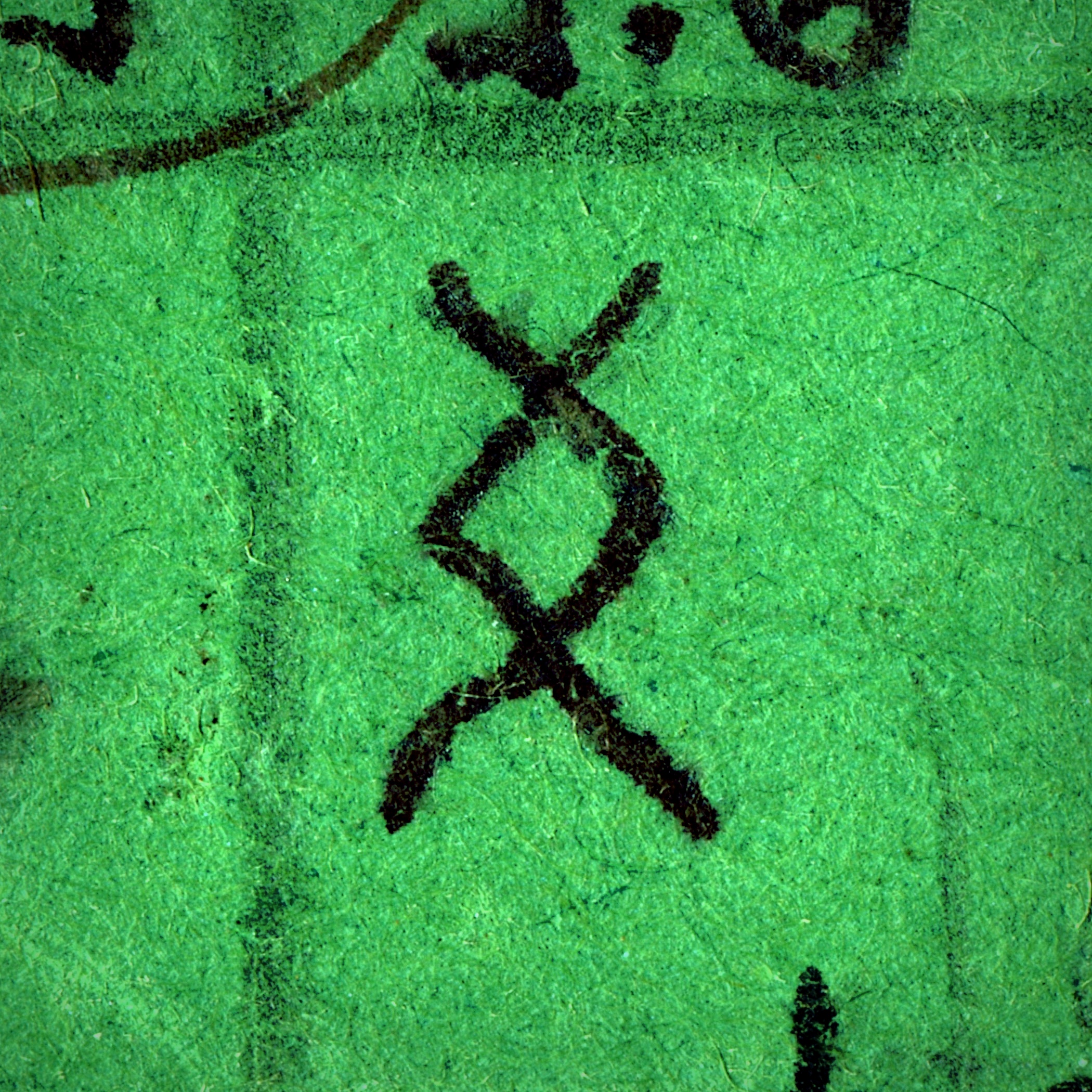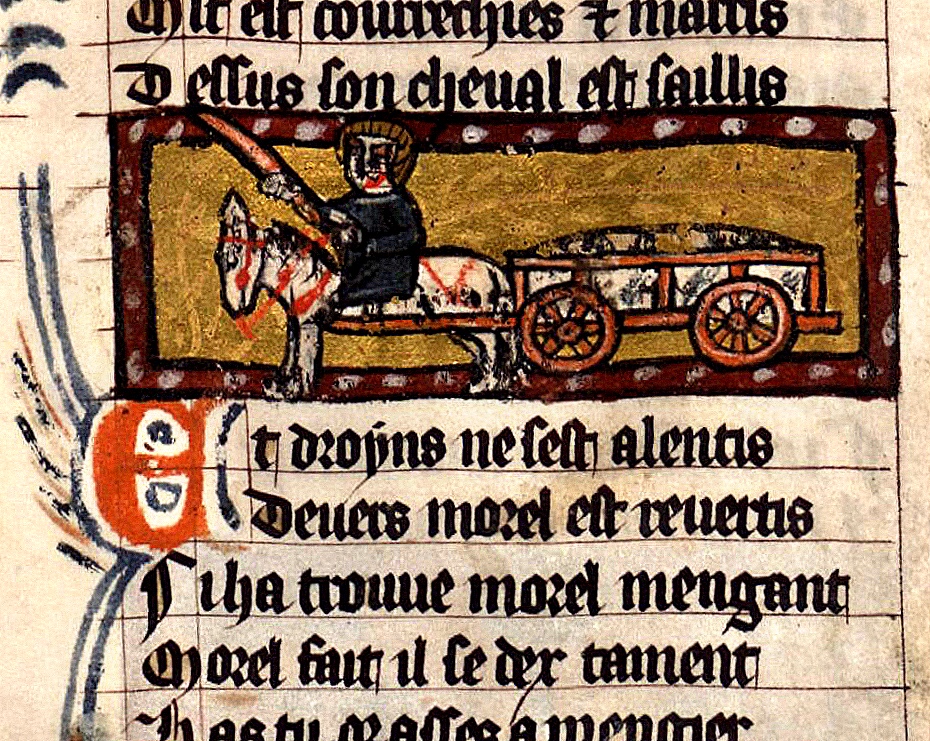
Ing was a deity of prosperity and we remember his abundance in our coins the scilling (shilling) and the feorþing (farthing). In oldest Old English Ing is a word meaning a muggy riverside meadow, the only valuable land for farming in a wild swamp.
Ing left for the east with his cart running after him like a suffix to his word, but in Old English Ing is the suffix running after feminine nouns denoting action: feding = feeding, bletsing = blessing. Ing is also a patronymic suffix used to show family groups, kinds of people or things, or anything belonging to something or someone: deorling = darling (dear-ling), georgling = a child, cyning = king, Centingas = people from Kent. Scyldings = a family name. Ing as a suffix took on more and more uses and we can find Ing actively running behind many words now.
Carve an ᚷ, what a gift! Now carve another, and stand it on top. Ing brings stacks of blessings.



